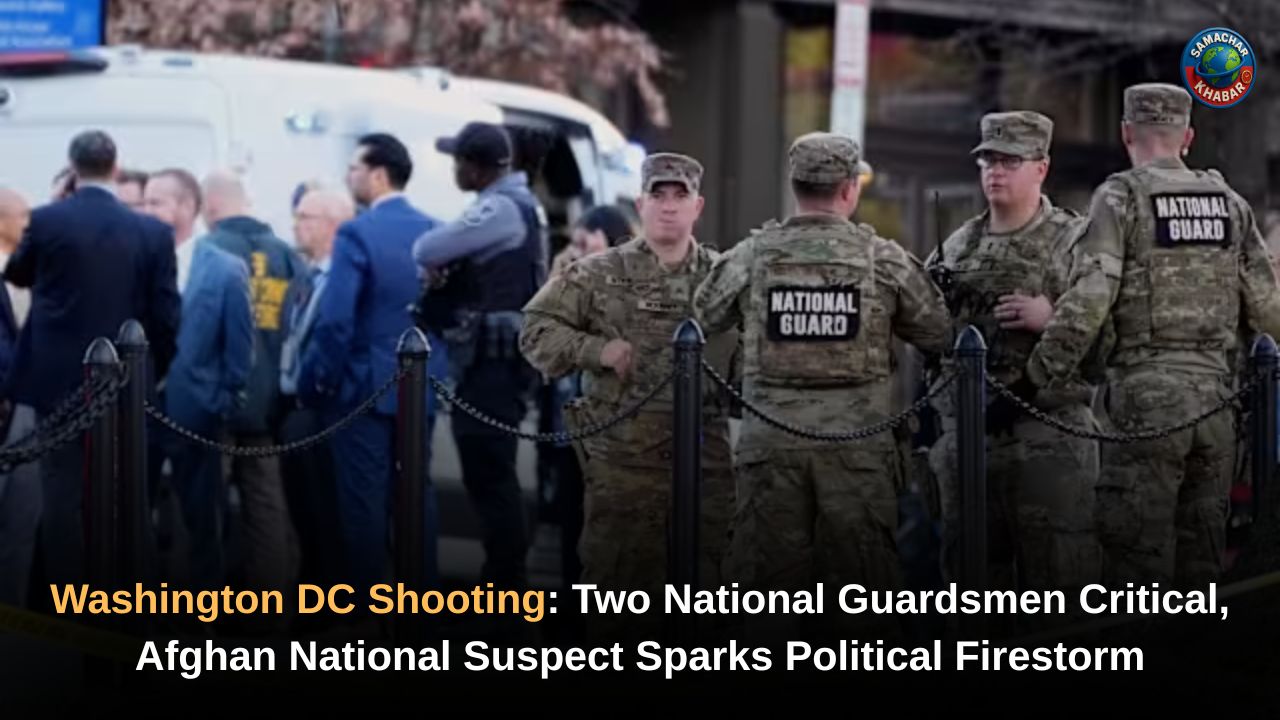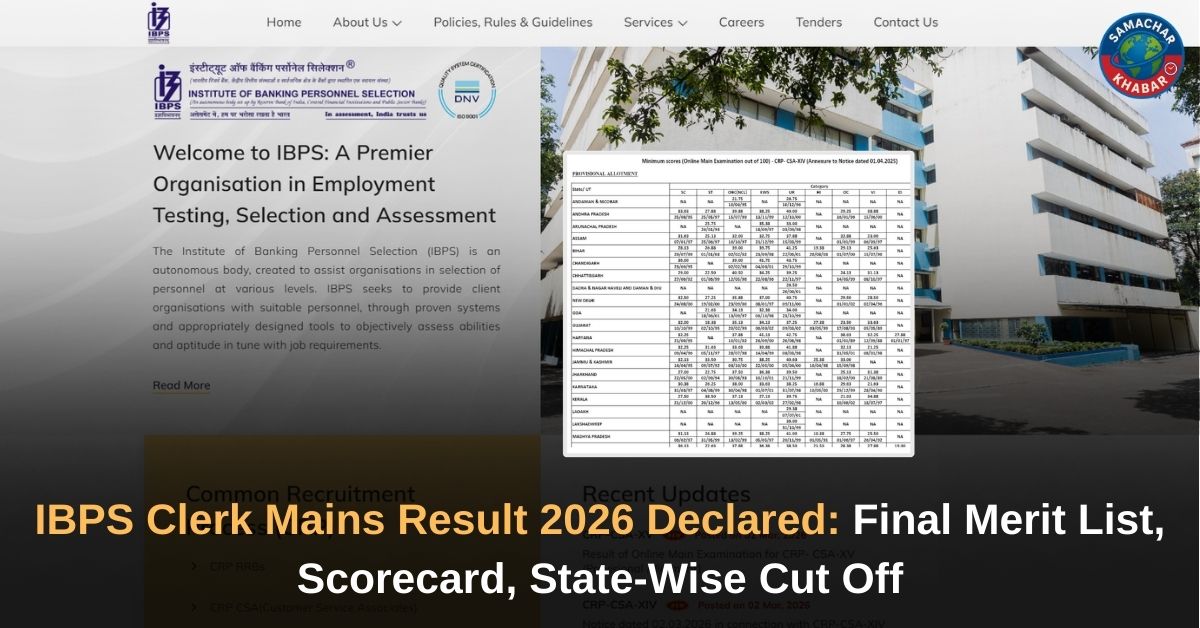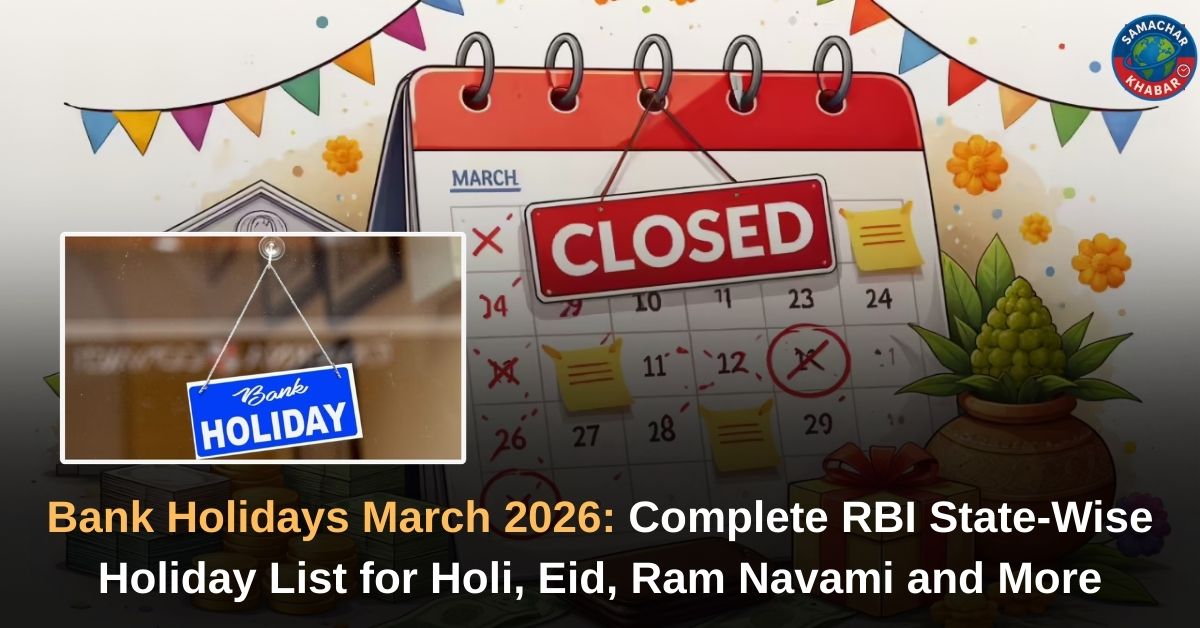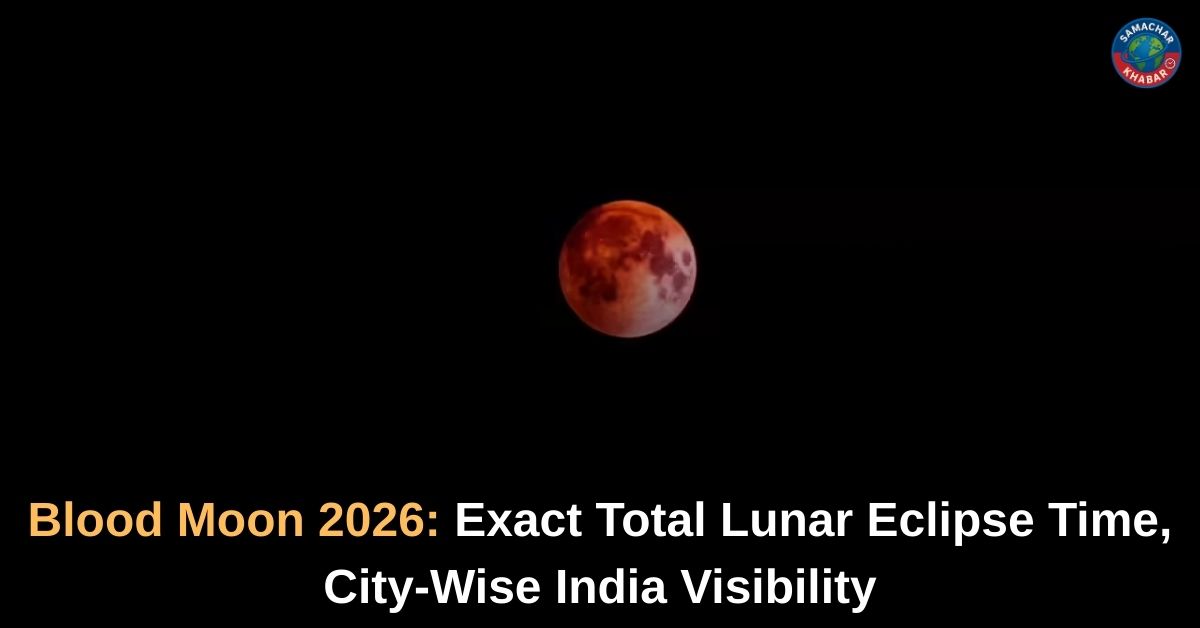Washington DC Shooting: In a deeply alarming incident just blocks from the White House, two West Virginia National Guard members were critically shot in what authorities describe as a “targeted ambush.” The attack, carried out near Washington DC’s busy Farragut Square, has triggered massive security disruptions, intense political fallout, and a renewed national debate over Afghan vetting, immigration policies, and the controversial deployment of thousands of National Guard troops across U.S. cities.
As investigators search for a motive, federal officials confirmed the suspect is an Afghan national who entered the U.S. during the Afghanistan withdrawal period in 2021.
Key Takeaways on the Washington DC National Guard Shooting and Afghan Vetting Controversy
- Two West Virginia National Guard troops were critically wounded in a brazen daylight ambush near the White House.
- The suspect, identified as Afghan national Rahmanullah Lakamal/Lakanwal, arrived under the Biden-era Operation Allies Welcome program.
- The FBI, DHS, Pentagon, and local authorities are jointly investigating the shooting as a targeted attack.
- President Donald Trump condemned the incident as “an act of terror,” demanded a nationwide review of Afghan entrants, and ordered 500 additional Guard troops to Washington DC.
- The shooting reignited fierce debate over the legality and safety of Trump’s National Guard deployment in American cities.
- Conflicting early reports emerged on the victims’ conditions, though both remain hospitalized in critical states.
- Afghan community advocates urge accountability without broad demonization.
Inside the DC Attack That Shook the Nation
A Targeted Shooting in the Heart of the Capital
The attack unfolded around 2:15 p.m. near the Farragut West Metro Station—one of downtown DC’s busiest lunchtime zones. According to police, a lone gunman “came around the corner” and immediately opened fire on uniformed National Guard members conducting a high-visibility patrol less than two blocks from the White House.
Witnesses heard a rapid series of gunshots and saw crowds scattering in panic. Bystander videos showed two soldiers lying on the ground in uniform while medics performed emergency treatment. Glass from a shattered bus shelter littered the sidewalk, and within minutes, the area swarmed with Metropolitan Police, FBI agents, and National Guard reinforcements.
Authorities described the shooting as a “brazen ambush.”
Who Is the Suspect?
The Department of Homeland Security identified the shooter as 29-year-old Afghan national Rahmanullah Lakamal (also reported as Lakanwal/Lakanwal). Federal sources say he arrived in the United States under Operation Allies Welcome, the program that resettled tens of thousands of Afghans after the 2021 U.S. withdrawal.
Media outlets reported that he previously served in Afghanistan’s 01 Unit, a special operations group trained and equipped by U.S. intelligence during the former Afghan Republic. Afghan sources claimed that veterans of that elite unit have faced serious psychological stress in recent years.
Reports from law enforcement say the suspect shot one guardswoman in the chest and head before turning his weapon on the second guard. A third Guardsman returned fire, striking the suspect multiple times. He was taken to a hospital nearly unclothed after being subdued on the ground.
Though shot four times, officials said his injuries were not immediately life-threatening. He has so far refused to cooperate with investigators.
Rising Questions Over Vetting and Security
President Trump, speaking from Palm Beach, called the incident “an act of evil, hatred, and terror.” He asserted that the shooter entered the U.S. through Biden-era Afghan resettlement channels and demanded a nationwide re-examination of all Afghan nationals admitted under that program.
Within hours of the attack, USCIS announced it had halted all Afghan-related immigration processing pending a review of vetting protocols.
FBI Director Kash Patel said the case would be prosecuted federally, adding that investigators are examining whether terrorism or self-radicalization played any role. DHS officials confirmed they are reviewing the suspect’s immigration history and any potential gaps in follow-up security assessments.
National Guard Presence Under Intensifying Scrutiny
The shooting comes amid an already heated debate around the deployment of National Guard troops in Washington DC and other major cities. President Trump ordered the Guard into the capital in August, declaring the city’s crime levels intolerable despite official data showing significant declines.
Around 2,200–2,400 Guard members from DC and multiple states are currently deployed, yet the mission has been repeatedly criticized by local leaders, civil liberties advocates, and even federal courts.
Last week, U.S. District Judge Jia Cobb ruled that the deployment was likely unlawful and carried a “substantial risk” of a dangerous incident involving troops on the street. Her order halting the deployment will take effect next month unless overturned on appeal.
Following the shooting, Trump requested an additional 500 Guard troops, further fueling debate over militarization and force protection.
Former DC Police Chief Charles Ramsey said the attack underscores a long-standing concern:
“National Guardsmen are not trained for civilian law enforcement exposure. You’ve put them in a bad position.”
Chaos and Disruptions Across the Capital
The shooting prompted a temporary FAA ground stop at Reagan National Airport, halting flights and causing airborne delays during one of the busiest travel weeks of the year. Streets surrounding Farragut Square were locked down, and federal agencies issued alerts urging residents to avoid the area.
Mayor Muriel Bowser described the shooting as “targeted.” Local and federal units are now reviewing surveillance footage, eyewitness testimony, and ballistic evidence to pinpoint the motive and understand whether the Guardsmen were symbolic targets or victims of opportunity.
Political Leaders React Nationwide
The shooting produced an immediate wave of bipartisan concern:
- Trump urged prayers for the troops and promised maximum punishment.
- Vice President JD Vance asked all people of faith to pray for the victims.
- Joe Biden and Barack Obama condemned the attack and emphasized unity against violence.
- Afghan aid groups warned against broad blame, saying individual crimes must not stigmatize an entire refugee community.
- Lawmakers from both parties expressed fears about Guard safety, mission clarity, and the impact of the hyper-politicized climate.
A White House spokesperson rejected claims that the Guard should not have been deployed, accusing critics of “politicizing tragedy.”
A Nation Confronts Unsettling Questions
As investigators work to determine what motivated the near–White House attack, the country is left grappling with deeper issues—immigration vetting lapses, use of military personnel on domestic streets, and the vulnerabilities faced by Guardsmen assigned to high-visibility security roles.
Unfolding on the eve of Thanksgiving and in one of America’s most symbolic and heavily patrolled districts, this incident has reignited a national reckoning over how the U.S. balances security, immigration policy and the protection of those sent to safeguard its cities.
FAQs on the Washington DC National Guard Shooting Near the White House
1. What happened in the Washington DC National Guard shooting?
Two West Virginia National Guard members were critically shot near the White House in a targeted ambush near Farragut Square, prompting a major federal investigation.
2. Who is the suspect in the National Guard shooting?
The suspect is Afghan national Rahmanullah Lakamal/Lakanwal, who entered the U.S. in 2021 under Operation Allies Welcome and was shot before being taken into custody.
3. What actions did President Trump take after the shooting?
Trump condemned the attack as terrorism, paused Afghan vetting processes, called for re-examination of Afghan entrants, and ordered 500 additional National Guard troops to Washington DC.
4. Why is the National Guard deployment in DC controversial?
The deployment faces legal and political challenges, with critics arguing it violates limits on military involvement in domestic policing and puts Guardsmen in unsafe, untrained roles.
5. How did the shooting impact Washington DC security?
The attack triggered lockdowns, a temporary flight halt at Reagan Airport, heavy police presence, and renewed concerns about Guard safety and federal security protocols.














